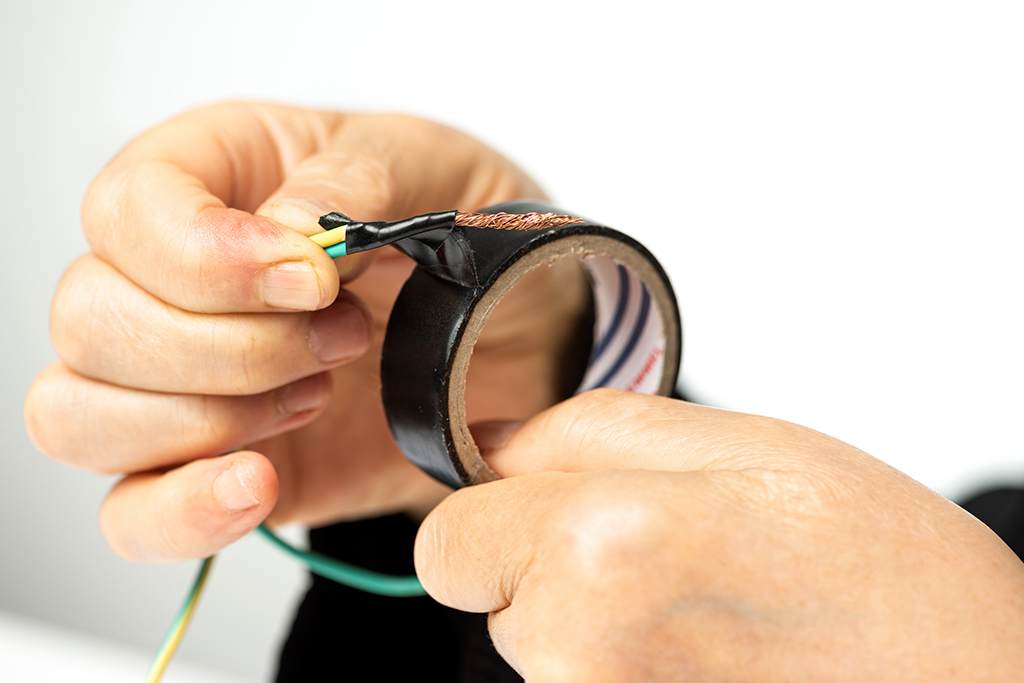
Keeping Your Home Safe With Your Electrician: Signs You Need Electrical Code Corrections | Conway, SC
Photo By turk_stock_photographer at istock
When was the last time your home in Conway, SC, was brought up to code? If you don’t recall the time when an electrician performed corrections on your home, then you are compromising the safety of your family and property.
Malfunctioning and faulty electrical systems are risky and likely cause fires, explosions, electrical shock, and power surges. Approximately 18 percent of civilians’ deaths and 20 percent of property damage in the United States result from electrical malfunctions or failures.
That’s why it’s essential to know the signs that your house needs code corrections to ensure the safety of your family and appliances. Before discussing the signs that your home needs electrical code corrections, let’s shed some light on the National Electric Code.
What Is the National Electrical Code
The National Electrical Code or NEC is a set of safety standards that guides all electrical repairs and installations. The code is dynamic as it is revised regularly as more new standards are defined due to the ever-changing technology. After three years, the regulations are updated; hence, it’s essential to ensure your home’s electrical system stays compliant.
Violating electrical codes may lead to dangerous safety hazards for residents in Conway, SC, and should be promptly addressed by a competent electrician. Breaking these codes can also make it difficult to sell your home. If you are living in an old property, the chances are that the electrical codes are already outdated, and you may need a skilled contractor to update them.
Thus, it’s always vital to have a certified electrician in Conway, SC, conduct inspections regularly to ensure that your electrical codes are updated. If you notice any of the signs below, then it could mean you need electrical code corrections for your property.
Receptacles Issues
According to NEC, homeowners should avoid extension cords because they trip people and start fires. Instead, an electrician should fix adequate receptacles to ensure any six-foot appliance cord reaches an outlet and prevent it from going across a passageway.
The code also requires tamper-resistant receptacles to be mounted in all locations in your house, both indoors and out. These receptacles ensure safety for homeowners with kids as they prevent children from putting objects into the outlets.
To avoid violating these codes, you should hire a certified electrical contractor who will follow the code correctly during installation. When your electricity is up to code, you’ll have peace of mind knowing that your loved ones are from any electrical hazards. Complying with the code also saves you money in the long run.
Outlets Not Working
If a qualified electrician does not do your electrical outlet wiring services or fails to comply with the latest electrical codes, don’t be surprised if the outlets stop working. This happens when you notice that your outlets are not working and your breaker hasn’t tripped. In such cases, your outlet could be having a bad connection causing it to stop working.
Once you notice your outlet is not functioning correctly due to poor connection, you can contact an electrical professional to perform the necessary diagnosis and code correction to ensure it complies with the latest electrical updates.
Wrong Circuit Breaker
Some homeowners may not be aware that there are different circuit breakers, and each has a specific use; hence, using the wrong one may lead to electrical hazards. For instance, ground fault circuit interrupters (GFCIs) are used for small appliances and near water.
According to NEC, GFCIs should be used in sump pumps, unfinished basements, garages, crawl spaces, and wet bars. Also, these circuit breakers must be installed correctly and be in accessible areas where individuals can reset them quickly if they break the current.
On the other hand, standard circuit breakers safeguard equipment and wiring and are used for large appliances. If you’re looking for a circuit breaker that offers protection against fire or ensures your family’s safety, then a standard circuit breaker cannot provide that.
Lastly, the arc fault circuit interrupters (AFCIs) are ideal for preventing fires, and NEC requires them for living spaces. However, you may need the help of an electrician to select the one that’s proper for your home in Conway, SC. The code needs all newly constructed houses to install AFCI. If you are replacing, modifying, or extending branch-circuit wiring into your existing home, you must install an AFCI.
Grounding Issues
Back then, underground metal water piping was considered the best grounding electrode. Currently, plastic is the most used underground water piping. Since new plumbing is mainly plastic, electricians advise homeowners to utilize the rebar in new concrete as their primary grounding electrode during construction.
Thus, during the early phases of your construction project, the professionals will coordinate with the contractors because once the concrete has been poured, the rebar can’t be accessed.
Bad Splicing
Even though it’s common knowledge that splicing two electrical wires should be done inside a junction box, some individuals still violate this code by putting the splice outside the junction.
If you have to place the splice outside then, it should only be for temporary lighting or as part of troubleshooting. An electrician will fit a junction box, connect the wires inside, use wire nuts to finish the splice, and replace the cover plate to avoid this violation.
Old Wiring with New Devices
Over time, parts of your wiring can deteriorate or get damaged, putting your house at risk of fire, presenting a severe shock hazard. To know if your wiring can handle your home’s electrical loads, you can have a licensed electrical professional assess its condition and help you understand where it stands.
In most cases, mounting new fixtures, such as lighting, on old wiring can cause significant problems. For instance, old wires were designed to take only 140 degrees Fahrenheit while new lights run at around 194 degrees Fahrenheit.
A qualified electrician in Conway, SC, can help you avoid electrical hazards by mounting a splice box with new wires running to the fixture. If your electricity system uses wires manufactured before 1987, you should hire an electrical professional to replace them immediately.
Get Your Electrical Corrections Done Right By Mister Sparky of Myrtle Beach
Electrical code violations can not only damage your home systems but can even be deadly if left unchecked. Here at Mister Sparky of Myrtle Beach, your safety is our top priority.
Our certified electricians are updated on all of the latest local and national electrical codes and have the necessary sophisticated tools and expertise to enhance the safety of your home in Conway, SC, and ensure you adhere to all code and safety regulations. Call us today about all your electrical problems.

